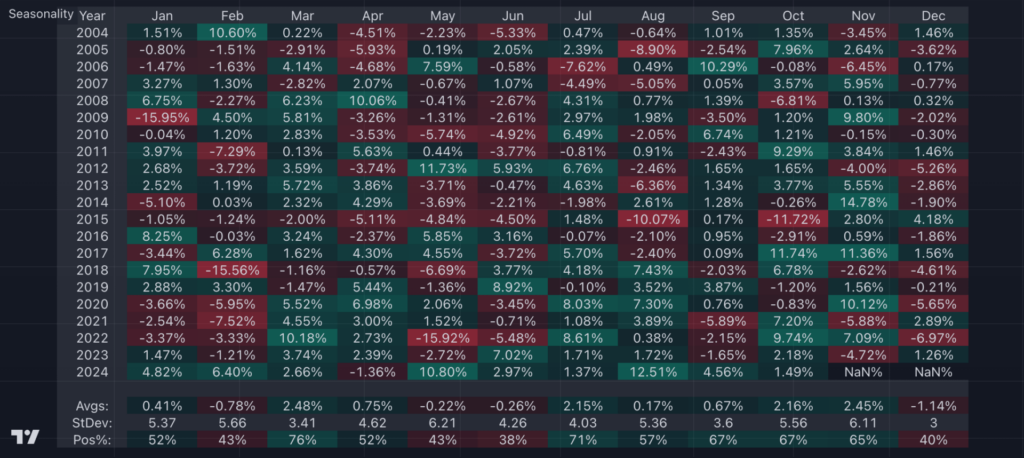For most stocks, a trillion-dollar valuation would represent incredible success. But for Apple (NASDAQ: AAPL), having a $1 trillion market cap in 2035 would not be a step up; it would be an enormous step backwards.
That’s because, as of this writing, Apple’s market cap is $2.6 trillion. So, let’s look at the iconic company’s prospects and see why a fall from grace isn’t entirely out of the question.
Challenges Ahead for Apple
Even though Apple is currently the world’s second-largest company, there are storm clouds on the horizon for this tech giant.
The company’s revenue is stuck in neutral. Over the last two years, Apple’s revenue leveled off at around $390 billion. It’s an impressive total, but among megacap companies, Apple’s lack of revenue growth is a real outlier. For example, Nvidia, with a market cap of $2.2 trillion, is expected to grow its revenue by nearly 80% this year.
Second, Apple is mired in a complex antitrust lawsuit with the U.S. government. While it’s unclear whether the lawsuit will succeed or fail, one thing is certain: It will bog down Apple in years of legal proceedings, draining valuable time and resources from the company.
Look no further than Microsoft‘s “lost decade” after its 1998 lawsuit with the Department of Justice. Over the 10 years following that legal action, Microsoft shares logged a compound annual growth rate (CAGR) of just 4% (they’ve recorded a CAGR of 28% over the last 10 years).
In other words, antitrust lawsuits are bad news for investors. And for Apple, it could be another warning sign of a lost decade dead ahead.
Market Cap Concerns
All that said, a “lost decade” wouldn’t see Apple’s market cap drop to $1 trillion. For that to happen, Apple’s stock would need to lose about 60% of its value — dropping the company’s market cap from $2.6 trillion to $1 trillion. So, the question is: Could that really happen?
On the one hand, anything can happen on the stock market. After all, in 2000, General Electric was worth nearly $600 billion — making it the world’s most valuable company. Today, it is worth $177 billion. That’s a decline of more than 70%.
Nevertheless, I don’t think Apple is destined to fall quite so far. True, the company has big challenges to overcome, including the antitrust lawsuit and the declining novelty of its flagship product, the iPhone.
However, Apple is no one-trick pony. Its services division is growing at a double-digit rate. That may not be enough to stem the tide if iPhone sales remain lackluster, but it’s not as if the company’s revenue is plummeting across the board.
Finally, and perhaps most importantly, the company has great leadership and a rock-solid balance sheet. Tim Cook took the reins at Apple in 2011. During his tenure, Apple stock generated a CAGR of 23%. That’s an impressive record.
Turning to its financials, Apple has $73 billion in cash and generated over $116 billion in free cash flow over the last 12 months.
Investment Outlook for Apple
This is a different question than whether Apple’s valuation will shrink to $1 trillion; it’s a question of whether Apple still has its key competitive advantages. And this is where I find the company lacking. Granted, the iPhone is amazing, and Apple retains much of its appeal among consumers. That said, like any consumer-facing company, Apple must continue to innovate, or the public will move on.
Moreover, from an investing standpoint, there are more exciting tech stocks out there: Nvidia, Microsoft, and Amazon, to name just three. Those companies, which are at the forefront of the AI revolution, seem better positioned to grow their businesses and return value to shareholders over the next 10 years.
So, while Apple probably won’t see its market cap shrink to $1 trillion, I still think there are better options for investors over the next decade than Apple stock.
Consider Before Investing in Apple
Before you buy stock in Apple, consider this:
The
The Quest for Stock Market Victory: Unveiling the Best Stocks for Astounding Returns
10 best stocks have been identified by Motley Fool Stock Advisor analysts, offering investors a tantalizing opportunity for potential growth. Surprisingly, Apple did not make the cut, paving the way for other contenders to potentially shine in the coming years.
A Beacon of Financial Guidance
Stock Advisor is a guiding light for investors, providing them with a clear roadmap to success. With expert advice on portfolio construction, regular updates from astute analysts, and the unveiling of two new stock picks each month, the service has become synonymous with financial empowerment. Notably, Stock Advisor has outperformed the S&P 500 threefold since the dawn of 2002.
The Path to Prosperity
Embark on a journey towards prosperity by exploring the 10 handpicked stocks that hold the promise of exceptional returns in the near future. Dive into the realm of investment possibilities and unleash the potential for significant financial growth.
*Stock Advisor returns as of April 30, 2024




